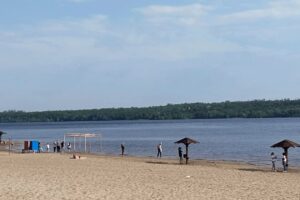
Since the beginning of 2025, 289 people have drowned in water bodies of Ukraine, among them 20 children. This is reported by the State Service for Emergency Situations (SSES).
According to the agency, only in May, 59 people died, including three minors. Separately, it is noted that only for one day at the end of May two deaths on the water were recorded. Thus, the total number of victims in January-May approached the mark of 291.
For comparison, during the whole of 2024, 894 people drowned, including 76 children. That’s a 22% increase from a year earlier. Last summer alone (June-August), 432 people died on the water, including 63 children.
According to rescuers, most tragedies occur in unequipped places for bathing. The main reasons are bathing in a drunken state, lack of adult control over children, as well as neglect of elementary rules of behavior on the water.
The State Emergency Service urges citizens to be especially attentive during summer vacation and to follow the recommendations:
swim only in authorized places with lifeguards on duty; do not dive in unfamiliar places; do not leave children unattended; do not enter the water in a state of alcoholic intoxication.In case of emergency it is necessary to immediately contact by phone:- 101 – Rescue Service (State Emergency Service)- 103 – Emergency medical aidAccording to rescuers, men aged 30-45 years make up the majority of victims on the water. Also a high level of death is recorded in Kyiv, Dnipropetrovsk, Kharkiv and Cherkassy regions.The Office reminds that compliance with safety rules can save a life. Make sure that the chosen place for swimming is officially authorized, and in case of emergency act immediately.
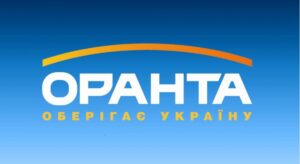
A new function with access to information about toll roads on the route and the ability to pay for them directly from the phone has appeared in the application “Oranta Drive”, according to the press release of Oranta. As the company notes, this will allow Ukrainian drivers to plan a trip to Europe in advance.
According to the press release, in the Oranta Drive app it is also possible to issue “auto insurance”, “Green Card”, “MiniKASKO”, apply for payment, get a push reminder of insurance terms, get discounts on fuel, service station services, pay fines and find parking in Kiev and Lviv.
“We don’t make an “app about everything”, we make an app about the main thing – everything a driver needs in one place. And the main thing is that it works quickly, without complicated instructions and without stress. European roads are just one of the steps in this direction”, – adds Ekaterina Mamai, the head of e-sales department of Oranta Insurance Company.
Oranta is the legal successor of Ukrgosstrakh, founded on November 25, 1921, and has been carrying out insurance activities in Ukraine for more than 100 years. The company has been a full member of the ITSBU since 1994, and since 2003 – a member of the Nuclear Insurance Pool. The main shareholder of the insurer is the Ukrainian business group DCH.
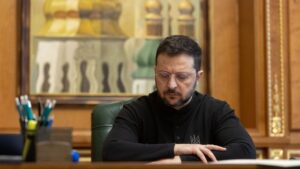
Ukrainian President Volodymyr Zelenskyy plans to hold a meeting of his team with representatives of the business community on Friday, June 27, to discuss pressing issues.
As it became known to the agency “Interfax-Ukraine”, the Union of Ukrainian Entrepreneurs (UEU), the American Chamber of Commerce in Ukraine (AmCham) are invited to the meeting, but the international business community Board is not invited.
“I, as the founder of the Board and as chairman of the Coalition of Business Communities for the Modernization of Ukraine, was not invited. In a strange way,” said Andriy Dligach, founder of Advanter Group and the Board community, in a comment to the agency.
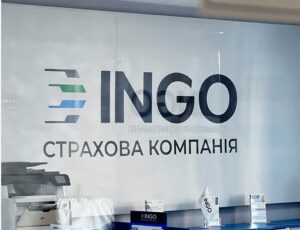
INGO Insurance Company attributes the 37% increase in the number of health insurance claims in January-March 2025 to the general deterioration in the health of the population.
“We attribute the increase in the number of claims to the general deterioration in the health of the population. Prolonged stress due to the war leads to an increase in chronic diseases and increases vulnerability to seasonal infections such as SARS, flu or covid. This year, the situation was exacerbated by weather conditions: the cold period lasted until the end of April, emphasizes Marina Zvarych, head of the personal insurance department at INGO, according to the company’s website.
In addition, according to her, the company is recording an increase in the number of cancer cases.
According to the report, in the first quarter, the company allocated UAH 174.2 million to cover expenses under health insurance contracts, and another UAH 3.38 million for accident-related insurance events.
Clients most often sought outpatient care, accounting for 54% of all claims. Another 22% were related to medicines.
Inpatient care accounted for 8% of claims, dentistry – 6%, ambulance calls – 1%, and another 10% were for other services provided for in the contracts. In accident insurance, injuries accounted for the bulk of claims, accounting for 64% of all claims. Another 14% were related to fatalities, 11% to critical conditions, and 6% to disabilities.
During the reporting period, INGO provided services to more than 58 thousand insured persons under health insurance programs and more than 25 thousand under accident insurance contracts. Most of the clients are employees of Ukrainian companies.
INGO Insurance Company has been providing insurance services for 30 years. Since 2017, the main shareholder has been the Ukrainian business group DCH.
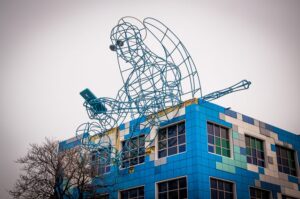
PrJSC “Production Association ‘Stalkanat’ (Odesa) will allocate UAH 60 million 511,837 thousand for dividends at the rate of UAH 0.29 per share from the profit for 2024.
The relevant decision was made by the extraordinary general meeting of shareholders on June 11 this year in remote mode.
According to the minutes of the meeting dated June 16, 2025, a copy of which is available to Interfax-Ukraine, the dividend payment period is from July 4 to December 11 this year.
Earlier, Stalkanat’s shareholders made a similar decision at their meeting on March 10, 2025, to pay UAH 60 million 511,837 thousand from the 2024 profit with a dividend payment period from April 4 to September 7 this year.
At the meeting held on November 13, 2024, the shareholders decided to allocate UAH 170 million 59,127 thousand, or UAH 1.63 per share, for dividends, with the dividend payment period from December 2, 2024, to May 13, 2025.
The shareholders’ meetings held on February 22, April 18, July 11 and October 16, 2024 decided to allocate UAH 60 million 511,837 thousand for dividends each time.
At the meeting held on November 6, 2024, the shareholders voted to conduct an additional issue of shares with a doubling of the company’s authorized capital to UAH 35 million 472 thousand 456.02 from UAH 17 million 736 thousand 228.01. Additionally, 104 million 330,753 thousand shares were placed among the shareholders in one stage from December 23, 2024 to January 22, 2025. All the funds raised from the additional issue will be used to repay the principal amount of the debt under the loan agreement with FUIB dated September 29, 2012.
As reported, in 2024, Stalkanat reduced its net profit by 34% year-on-year to UAH 184.808 million from UAH 280.060 million, but increased its net income by 33.3% to UAH 4 billion 436.786 million. Retained earnings at the end of 2024 amounted to UAH 437.815 million.
“Stalkanat is one of the largest producers of steel ropes and reinforcing strands in Eastern Europe and a leader in the production of hardware products in Ukraine.
As of the first quarter of 2025, David Nemyrovsky holds a 50% stake, Anton Mikhalenko (non-resident) – 23.7%, and Maria Kondratyuk – 23.1%. Earlier, the company reported that an individual, Vitaliy Dubovich, owned 3.199998% of its shares.
The authorized capital of Stalkanat currently amounts to UAH 35.472 million, with a share price of UAH 0.17.
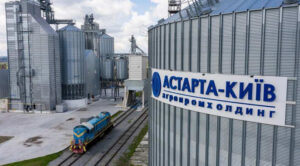
Astarta, Ukraine’s largest sugar producer, has 11% of its employees aged 60+ and is working to increase this ratio to 20%, said Viktor Ivanchyk, SEO and owner of the agricultural holding.
“Astarta companies employ 11% of people aged 60+. We are working to increase this ratio to 20%. I am confident that this 20% will play no less of a role than the other 80%,” he said at the presentation of the study ‘Active Longevity in Ukraine: A Study of the Current Status and Barriers’ in Kyiv on Tuesday.
Ivanchyk drew attention to the fact that one of the main sources of ageism in companies is young employees working in HR departments.
He expressed a wish that HR departments, the Presidential Office, and the Cabinet of Ministers would also take this important factor into account and urged them to hire and recommend experienced people for responsible positions.
As an illustrative example, he cited the plot of the movie “The Intern” with the main character played by Robert De Niro.
“There should be much more such interns at both the state and business levels,” the Astarta SEO is confident.
“Astarta is a vertically integrated agro-industrial holding company operating in eight regions of Ukraine, the largest sugar producer in Ukraine. It comprises six sugar refineries, agricultural enterprises with a land bank of 220 thousand hectares and dairy farms with 22 thousand cattle, an oil extraction plant in Globyno (Poltava region), seven elevators and a biogas complex.
“In 2024, Astarta increased its net profit by 34.5% to EUR83.25 million, while its consolidated revenue decreased by 1.1% to EUR612.15 million.
In the first quarter of this year, the agricultural holding’s revenue fell by 24.9% to EUR124.58 million, while net profit fell by 28.8% to EUR6.42 million.
On June 12 this year, the shareholders’ meeting approved the payment of dividends for 2024 in the amount of EUR0.5 per share for a total of EUR12.5 million, which is in line with the previous two years.